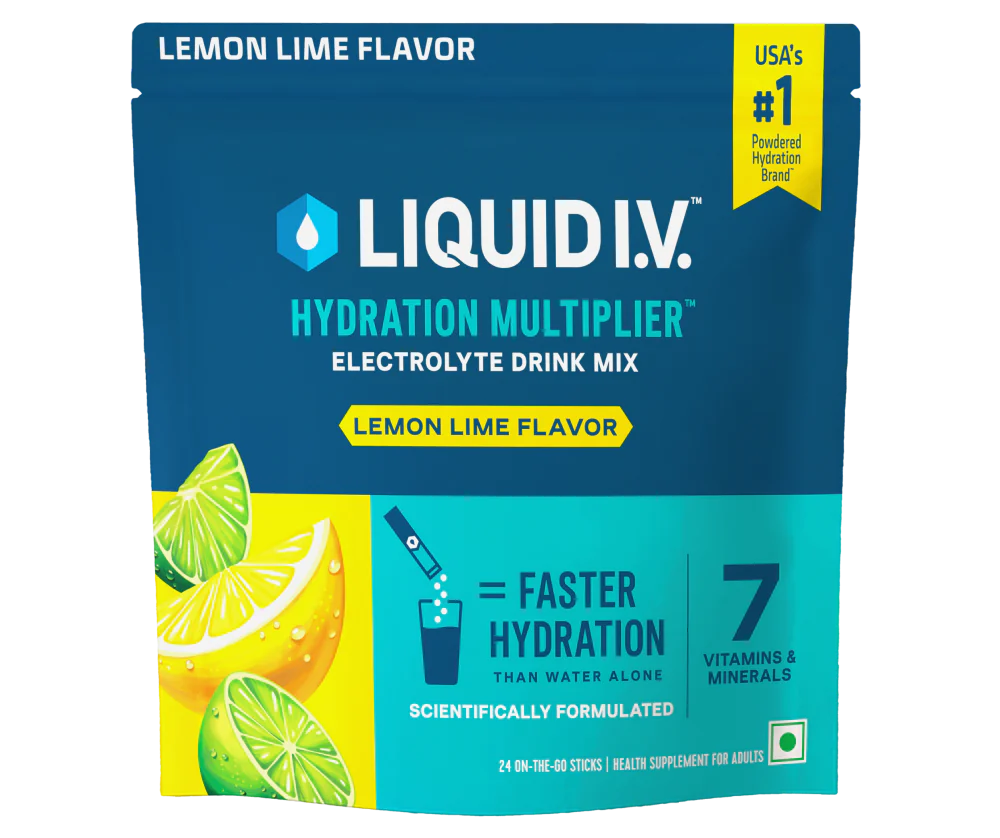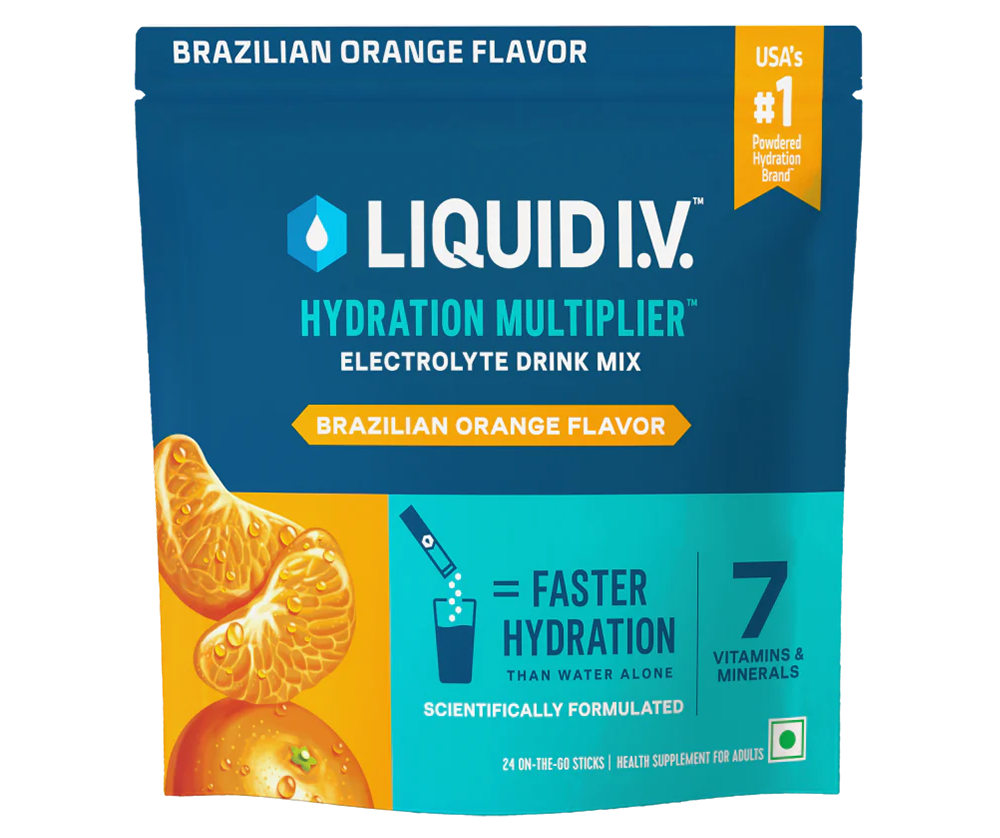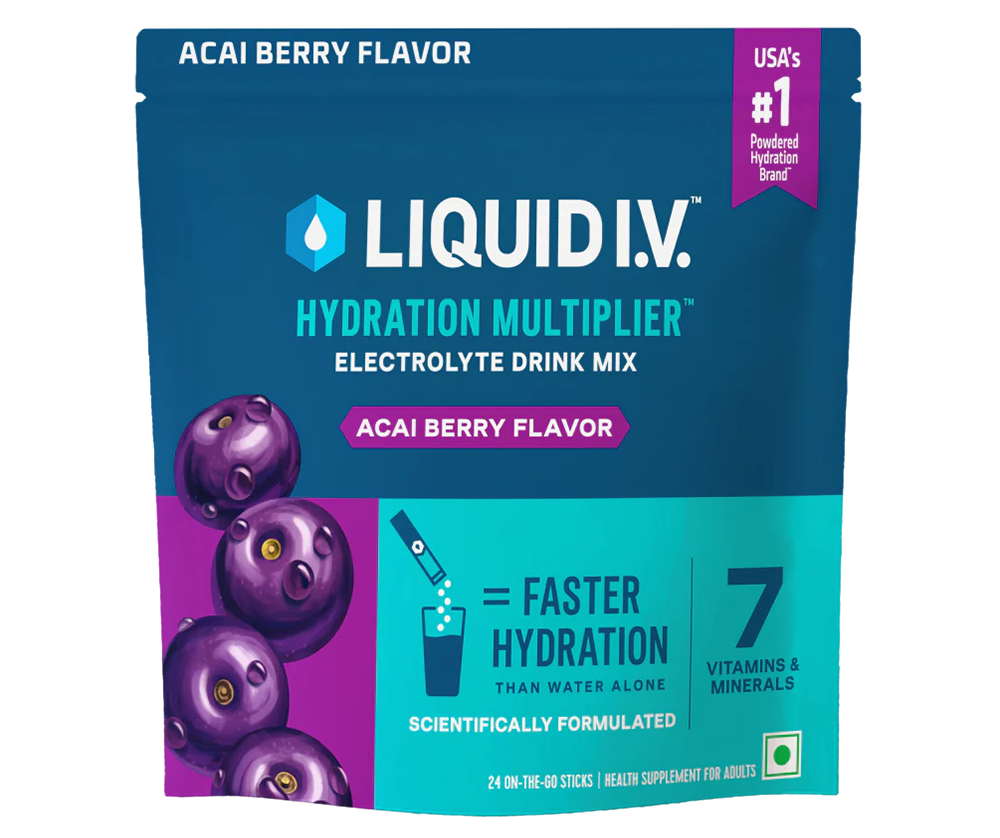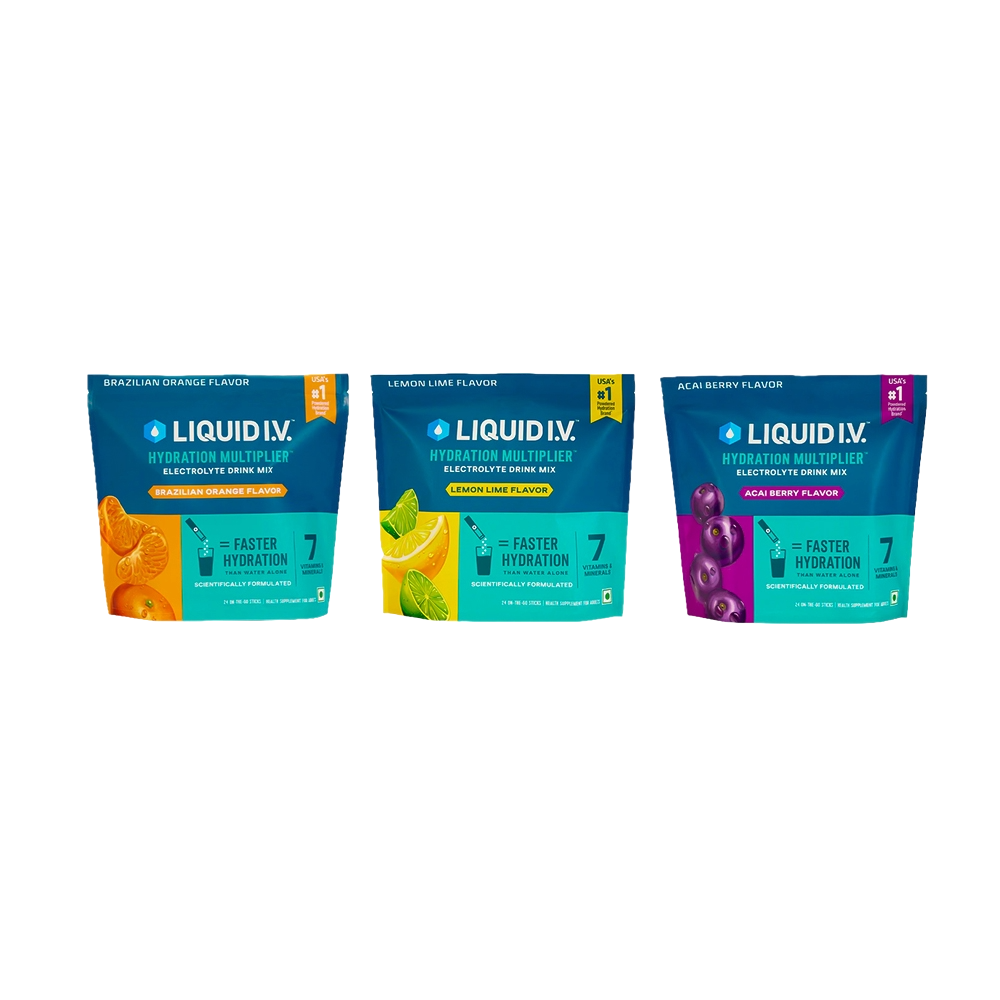Balancing Electrolytes on Keto: Essential Tips for Success
Keto is basically the VIP section of diets, where carbs are NOT on the guest list. You swap out the bread and pasta for fats, and boom - your body apparently starts to burn fat for fuel instead of carbs. It's a total glow - up for your metabolism. (1)
Now, let’s talk electrolytes - aka the squad of minerals (sodium, potassium, magnesium, and calcium) that keep your body functioning like a well - oiled machine. They’re the behind - the - scenes heroes handling nerve signals, muscle movements, hydration, and overall balance of body. (2) But here’s the catch: keto can be a bit of a party crasher when it comes to electrolytes, causing your body to lose more of them. In this blog, let us understand how to get the electrolytes while you play the keto game.
What are electrolytes?
So, electrolytes are basically the body’s little powerhouses - tiny minerals with an electric charge that keep everything running smoothly. They hang out in fluids like blood, sweat, and urine, and they’re essential for sending signals all over your body. Think of them as the Wi - Fi connection for your nerves and muscles, making sure everything, including your nerve signals, heartbeat, stay on point. The heroes of the squad? Sodium, potassium, chloride, and bicarbonate. These minerals oversee keeping you hydrated, helping your muscles function optimally, balancing your body’s pH, and making sure nutrients get in while waste gets out. (2)
Long story short: If your electrolyte levels are off, you might start to feel tired, crampy, or even dizzy - so keeping them in check is a must. (3)
Electrolytes on Keto: Why you need more
Going keto means saying goodbye to carbs, which also means your body burns through something called ‘glycogen’ - the backup stash of glucose that holds onto water. When glycogen levels drop, all that extra water gets flushed out, taking important electrolytes with it. (1,4)
Plus, as your body starts to metabolise differently, remember you are feeding on more fats and less carbs, your kidneys flush out even more sodium. And when sodium takes a hit, other electrolytes follow suit, leading to imbalances that can leave you feeling drained, crampy, or just off. (4)
And yeah, staying hydrated is key, but chugging plain water without enough electrolytes may not help much here. That’s why keeping those minerals in check - through electrolyte - rich foods and supplements - is important for feeling your best on keto.
Electrolytes and Keto Flu
Starting keto? Congrats, but brace yourself for the keto flu, aka the annoying adjustment phase where your body freaks out a bit before switching to fat - burning mode. The culprit? Electrolyte imbalances. Here’s the breakdown:
Sodium: Think of sodium as your body's hydration manager. It keeps fluids balanced, nerves firing, and blood pressure stable. Solution? Salt your food well, but not too much and stay hydrated. (5)
Potassium: This one's the MVP for nerve signals and muscle functions. Since high - carb faves like bananas and potatoes are off the table, potassium levels can tank, bringing on weakness, soreness, and exhaustion. Fix? Potassium + keto friendly = Avocados, spinach, and salmon - your new besties. (5)
Bottom line - keto flu is basically your body's way of saying, "Give me my electrolytes back!" Stay hydrated, eat smart, and balance those minerals for a smoother transition.
How To Get Enough Electrolytes on Keto
Step one - eat smart. Load up on keto - friendly foods packed with electrolytes. Think leafy greens, avocados, nuts, seeds, and dairy. And don’t hold back on the salt but not too much either! opt for sea salt or Himalayan salt - they’ve got extra minerals that your body loves. (6)
Next up - bone broth is your bestie. It’s packed with sodium and other key minerals that help keep things balanced. Sip on it like a pro, especially during the early keto days when your body is adjusting. For vegetarian options, swap it with mushrooms, and low carb options like seaweed and celery. (6)
Finally, if food alone isn’t cutting it - electrolyte supplements can be a game - changer. Pair them with adequate water, and you’ll dodge those dreaded keto flu vibes.
Conclusion
Staying on top of your electrolyte game is a non - negotiable for thriving on keto. Since this diet flushes out more electrolytes than usual, keeping them in check is the key to feeling good - especially during that rough adjustment phase. So, load up on electrolyte - rich keto foods and add supplements can help keep things balanced. Most importantly, listen to your body. If you're feeling sluggish, sore, or off, it might be time to tweak your electrolyte intake based on your needs and activity levels. Keep them dialled in, and you’ll sidestep the keto flu while making your keto journey smoother and more sustainable.
FAQs
-
How do I get electrolytes on keto?
You can get electrolytes on keto through keto - friendly foods naturally rich in sodium, such as olives, and cheese or potassium rich avocados and leafy greens. If you find it challenging to meet your electrolyte needs through diet alone, consider using electrolyte supplements. A hydration drink, like Liquid I.V.™, with sodium, potassium and glucose can help. -
What are the best electrolytes for keto?
While all electrolytes are important, sodium often requires the most immediate attention when starting a ketogenic diet due to increased excretion. -
Can you have too many electrolytes on keto?
It is aways important to maintain a balance. Do not be over generous with salt in your food or over - supplement. At all times, balance it.





